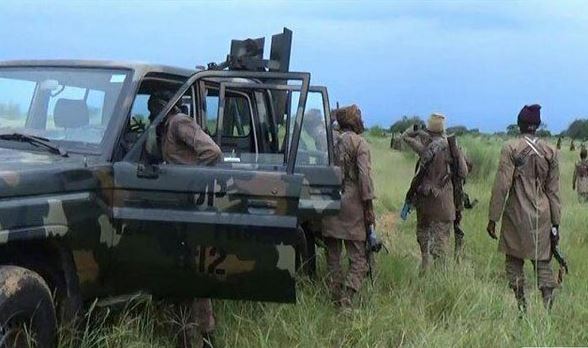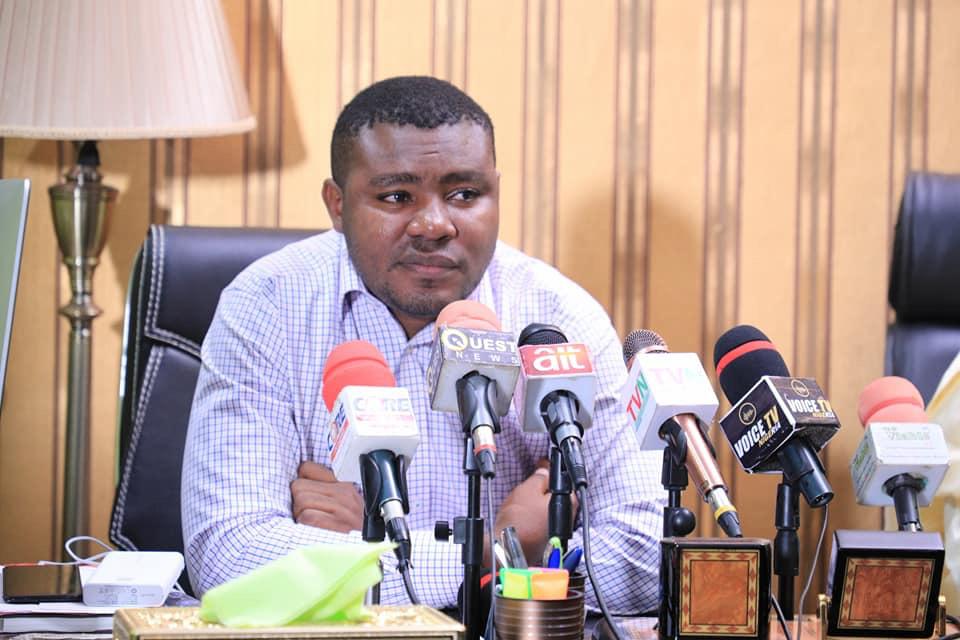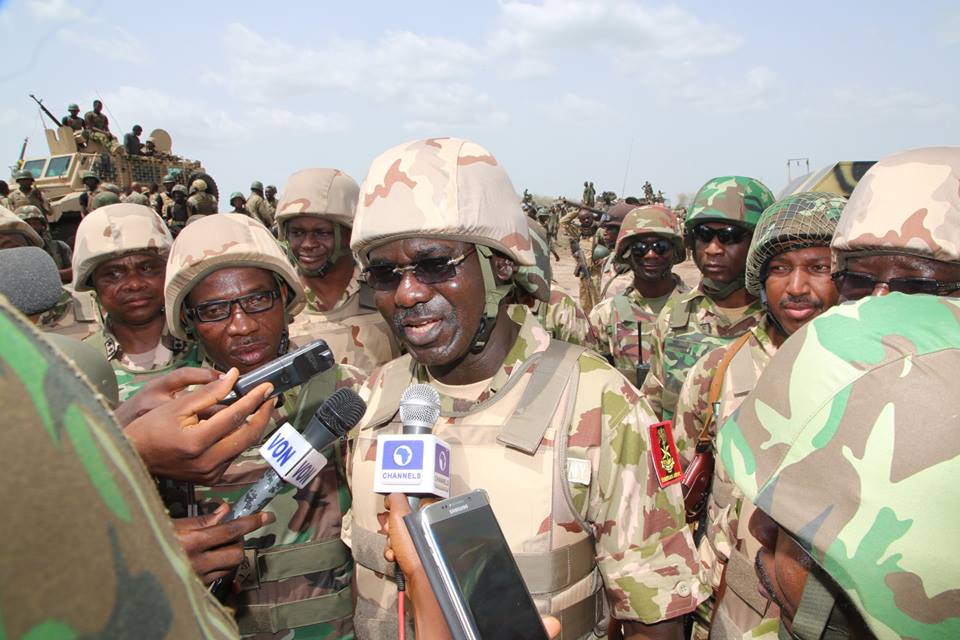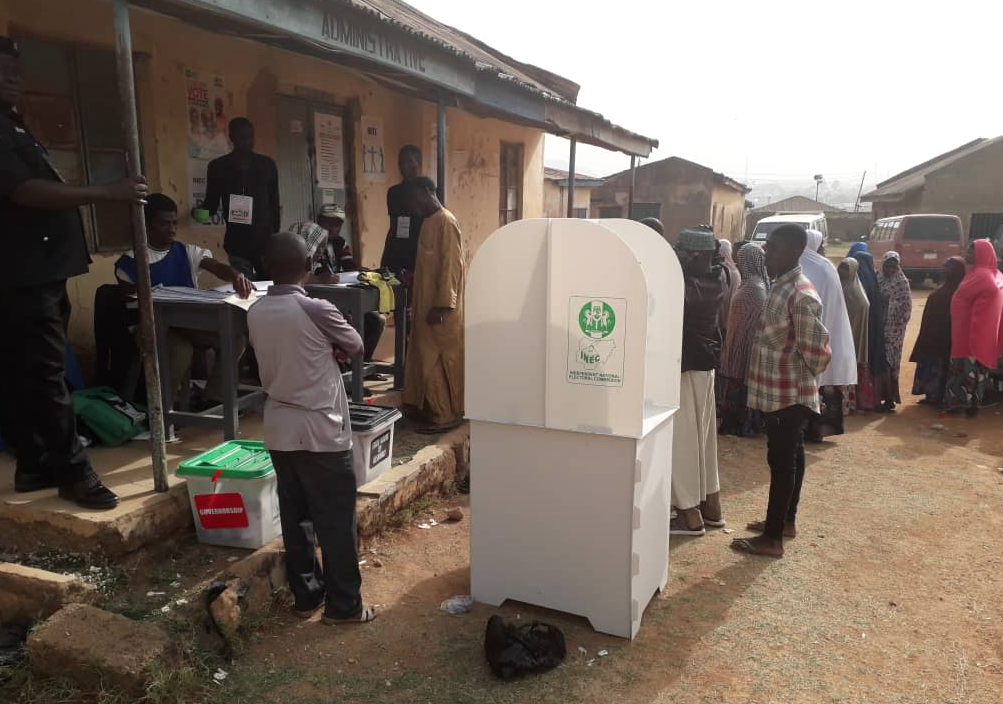BY RICHARDS MURPHY
The Nigerian Army has kept the flames alive in the battle against Boko Haram terrorists in the past three years. It is no longer debatable that the religious extremists’ sect is decimated and defeated. But once in a while, Nigerians are inundated with news of insurgents sprouting from sleeper cells to launch attacks on obscure communities.
Parts of the three Northeastern states of Borno, Yobe and Adamawa are still embroiled in this mess. But it is altogether not unusual with terrorism wars, and those familiar with the character of terrorism battles can attest to it.
Nigerians must necessarily understand that terminating terrorism finally is not a function of field battles alone, but a combination of several factors. The COAS and leader of the counter-insurgency operations, Lt. Gen. TY Buratai was on the right path when he adopted the “carrot and stick,” approach, which compelled the voluntary surrender of thousands of Boko Haram top commanders and foot soldiers to Army authorities.
Advertisement
Dialogue with diverse community leaders/stakeholders in the affected areas is another antidote of anchoring enduring peace. They are expected to engage, elucidate and dissuade their subjects from maintaining any ties with insurgents as well as enhance security vigilance. What has remained an intractable problem still propelling terrorists’ attacks in remote communities is the stark underdevelopment of these areas. Agreed, development is a major problem in Nigeria and it has eluded many states in the country.
But the case of the war-torn and devastated states of Borno, Yobe and Adamawa is extra-ordinary and requires more attention than currently obtains. Almost all IDPs have returned to once deserted, ruined and devastated villages. But poor infrastructure and inaccessible communities is largely responsible for the intermittent insurgents’ attacks on returnees. And to think that these governors have literally local governments, the third tier of government which is closer to the people and platforms’ of rural development is heartless and callous.
Quite sadly, Governments of the respective states have abandoned or given less attention to issues of infrastructural promotion, which is nourishing the resurgence of terrorism. The Federal Government of Nigeria (FGN) is sinking N45 billion for the rebuilding of devastated and liberated communities in the region. But the funds are committed to the reconstruction and rebuilding of destroyed houses and public structures in communities/villages. The United Nations (UN), European Union (EU), philanthropic organizations’, the Northeast Development Commission among others have also keyed into the rebuilding and reconstruction of the ravaged Northeast.
Advertisement
And for humanitarian reasons and part of its Corporate Social Responsibility (CSR) the Nigerian Army under Gen. Buratai has played impressive roles in the rebuilding efforts of the Northeast. Through the COAS’s directives, the Nigerian Army Engineers (NAE) Corps have executed projects in road construction especially in Sambisa localities, electricity and water supply. Additionally, the establishment of Military Forward bases and, other Army formations as well as the Nigerian Army University, Biu are parts of Buratai’s idea of bringing development closer to the communities in the Northeast to reduce obscurity in order to rout out insurgents.
But in truth, despite these laudable efforts, it has failed to sufficiently address the infrastructural deficit prevalent in the Northeast based on the quantum of destruction insurgents imposed on communities in the region. This gap would have been bridged had the respective states government also demonstrated keen interest or similar commitment in the rebuilding and reconstruction efforts.
What is undeniably of immediate concern is the liberation of these forlorn communities from the plaque of inconspicuousness. It is what renders them prostrate to terrorists; these inaccessible communities offer fertile grounds for insurgents to incubate and come out to launch occasional attacks on these villages.
It may sound strange to many ears. But for instance, it is inexplicable and inexcusable why Borno state’s outgoing Gov. Kashim Shettima has not constructed a road from Maiduguri linking Rann, Kala-Balge LGA of the state, remotely located in the central senatorial district of Borno. But Rann is home to thousands of IDPs. And hundreds of communities in the state suffer similar neglect.
Advertisement
Communities in Yobe and Adamawa states are not spared the awful neglect despite the years of debilitating and pathetic conditions of the natives. Yobe outgoing Gov. Ibrahim Geidam and his Adamawa state counter-part, Gov. Muhammadu Bindow have no convincing reasons to advance for abandoning infrastructural development initiatives in their respective states. Soldiers have done enough on the battlefields, but these efforts and sacrifices can only be sustained if state governments show genuine commitment in opening up inaccessible areas by providing roads, electricity, industries and security stations.
Unarguably, this is the main agenda and the inevitable task ahead for the governors-elect of the three states. Luckily, all the three states most hit by insurgency have new governors and it is incumbent on them to get the priorities right. There are still traces of Boko Haram in these states because the Governors have refused to develop these states. Borno state particularly, which is the hub of terrorism has the poorest road networks and lack of Infrastructures in many Local Government Areas.
Finally ending Boko Haram terrorism should transcend mere wishful thinking; but actions to restore the lost glory of these communities. It is beyond the sounds of guns by troops. The Borno state governor-elect, Prof. Babagana Umara appears to have a clear compass in this direction, as he has promised as a priority, the tackling of the root causes of the Boko Haram terrorism .
Speaking after collecting his certificate of return from INEC, Umara laid the template by promising to fast-track restoration of peace, resettlement of displaced citizens, create job opportunities for unemployed youths and fund social rehabilitation. These are brilliant development roadmap initiatives, which ought to be emulated by the Yobe state governor-elect, Alhaji Mai-Mala Buni and his Adamawa state counterpart, Alhaji Ahmadu Fintiri.
Advertisement
If the efforts of soldiers have freed other states like Bauchi and Gombe among others from terrorism, it is an indication that Borno, Yobe, and Adamawa states can also be freed from insurgency. The sustained inaction of state governors is untenable, unacceptable and a mockery of the traumatized people.
The military has not relented and will continue to subdue and emasculate the manifest forms or remnants of Boko Haram. But the final success rests on the capacity of these states governments to tackle the question of poor infrastructure and poverty in the states. Leadership comes with a burden and they must be prepared to deliver results. It is no longer time to sustain the lip service on the total elimination of Boko Haram terrorism.
Advertisement
Murphy, a security consultant wrote this piece from Calabar.
Advertisement
Add a comment






